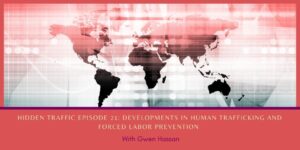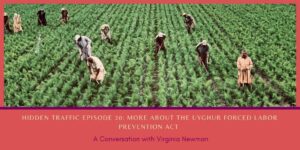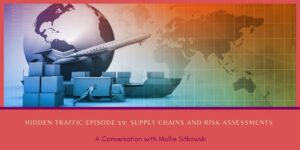In the short span of the 21st Century, the world’s two top powers, the United States and China have moved inexplicably toward a showdown. This evolved from a commercial competition into something more akin to permanent non-kinetic warfare. What does this mean for US business doing business in and with China? In this special 5-part podcast series, Tom Fox and Brandon Daniels, CEO of Exiger, a leading global third-party and supply chain management software company, explore issues diverse as a real danger, supply chain, exports, cyber-attacks, and IP theft from the business perspective and give the compliance and business executive their viewpoints on what you can do to not only prepare your company but protect it as well. In Part II, we discuss the issues in the Supply Chain, including issues of human rights, forced labor, and supply chain management in the Asia Pacific region.
Obviously, the issues around Uyghur forced labor in China are an important consideration for all American businesses with supply chains in China. While that issue focuses on human rights, it is also a wider world economic issue that requires a business solution. The key is to diversify the supply of goods, investing in other countries’ manufacturing capabilities to ensure that human rights abuses do not go unchecked.
Key Highlights:
1. What is the inextricable connection between human rights and economic policy when it comes to current geopolitical tensions with China?
2. How is the subjugation of Uyghurs in Xinjiang impacting the global economy?
3. What risks does reliance on China’s manufacturing pose for businesses, and how can companies diversify their supply chain to mitigate them?
Notable Quote
“It just takes investment. It takes time, but it’s an investment worth having because it provides us security in the potential and the ever more serious potential of a conflict with China.”
Resources
Tom Fox
Connect with me on the following sites:
Other episodes in this Series:
Episode 1-From Potential Conflict to Real Danger








